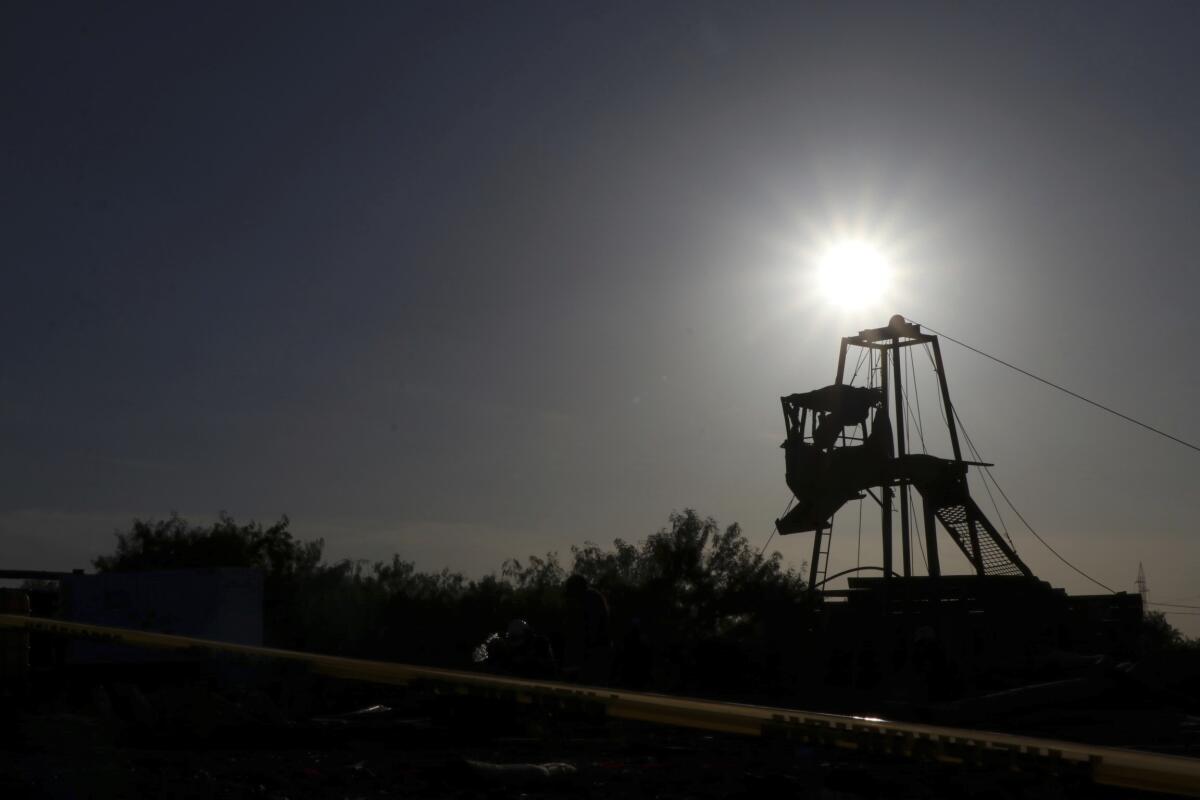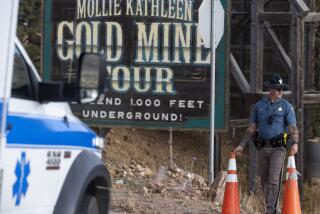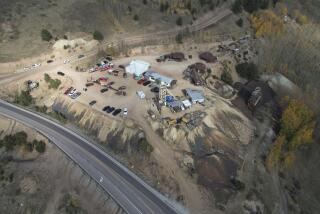Initial dives in collapsed Mexican mine unsuccessful

MEXICO CITY — Rescue divers’ first attempts to reach 10 miners trapped inside a flooded coal mine since last week were stopped by debris-filled shafts and poor visibility, Mexican authorities said Thursday.
They made four attempts Wednesday and managed to remove more than a dozen pieces of wood and some 15 yards of hose, but were not able to go far.
“They found they didn’t have space to advance,” said Defense Secretary Luis Cresencio Sandoval. “With the lights they carry they don’t have the visibility they need to identify what they find.”
On Aug. 3, 15 miners were inside the coal mine in Sabinas, about 70 miles southwest of Eagle Pass, Texas. Authorities believe the miners breached a wall containing another flooded area. Five miners managed to escape with injuries, but there has been no contact with the remaining 10.
For much of the past week authorities have used dozens of pumps to try to lower the water level inside the flooded mine shafts. Wednesday’s dives were the first attempt to enter the mine.
Coahuila Gov. Miguel Riquelme said via Twitter on Wednesday that pumping would resume before more attempts were made to enter.
In June and July 2021, cave-ins at two Coahuila mines claimed the lives of nine miners.
Mexico’s worst mining accident also occurred in Coahuila state on Feb. 19, 2006, when an explosion ripped through the Pasta de Conchos mine while 73 miners were inside. Eight were rescued with injuries including serious burns. The rest died and only two of their bodies were recovered.
President Andrés Manuel López Obrador’s administration promised two years ago to recover the remaining 63 bodies, a highly technical endeavor that has still not begun.
More to Read
Sign up for Essential California
The most important California stories and recommendations in your inbox every morning.
You may occasionally receive promotional content from the Los Angeles Times.










